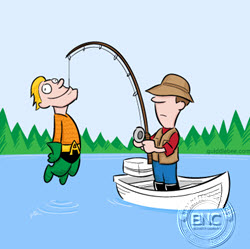Last Updated: Saturday, 07 February 2026 06:42
Online slots as a mind trap for addicted punters

Roughly speaking, if you translate it into the language of drugs: there is morphine, there is heroin, and there is methadone. All these drugs belong to the class of opiates, and in many ways, they are similar. But different chemical structures make them very different in terms of danger to the consumer.
The same is valid for slots. Different stuffing causes different effects of addiction. The job of slot developers is to create the most advanced formula, that is, a slot that puts players on the gambling hook in a very short time. In this case, slot developers have the latest advances in high-tech and psychology. It's no secret that the slot developers work with game addiction specialists, but with the opposite purpose. Their task is not to help the player, but on the contrary, to closer involve him in the game.
There are two players playing slots on their computers. How can you tell if one of them is more addicted than the other?
The bet amount is, as we understand it, very relative, and largely depends on the income of the players. You may be a responsible player by playing at max bets, and a dickhead addict playing at the lowest bets. The correct answer in our case will be as follows:
"The play speed". The more often the man clicks on "Bet", the less time between the spins, the deeper he is in addictiveness mode. The reverse answer is correct too. How do we have a player in addictiveness mode? Answer: make him play faster.
What is the difference between a slot with 1 line and a slot with 32 lines? In theory, these slots can have exactly the same or very close to each other RTP. But the second slot has 32 lines for a reason. This is a way to make the player play faster. In a short period, the player gets into his brain a queue of 32 bullets. His subconscious explodes 32 times, while at the first slot it's only once. 32 lines are basically 32 games, cleverly packed into one.
The play speed is not the only one, but one of the most critical elements in determining the slot intensity on the player's psyche. In the first 80 years of its existence, slots were a game of homeless people and low rollers. Basically, they were slot machines with the mechanical or electromechanical motor, offering a game on 1 or maximum 3 lines. In the 80s of the last century, the world of slots went through a revolution; the computer programs were put into the core. The revenue from slot machines went up sharply and is now confidently second placed in the world among all the casino games (the first one being Baccarat). Professor Natasha Dow Schüll specializes in the psychological aspects of slots. On the techniques that the developers use to make the slots be dreamed at night. Below is the text of one of her articles:
Slot math - player on the hook
- "Math is the tip, the sharpest part of the needle," says the game designer Nicholas Koenig, smiling and implying that the hidden math programming of slot machines was crucial to attracting players. Yet, while math works as an enticing factor, it also works as an element of player retention. That is the same hook. Koenig continued to explain: "After you get them [the players] hooked, you have to pull the money out of them until you get everything they have". After the player has taken the bait, the task of a good slot is not to let him go until he has nothing to lose. Moving on to a less aggressive metaphor, he spoke of the math model as a soft web. "As if the player is leaning back on the math model as if it were a chair, and it must be comfortable, they are investing a lot of money in a slot they didn't know before, and you need to make them feel like they can trust it (the slot). A slot must pass on this trust through a reward, subconsciously forming a trusting relationship between it and the player".

- "The player must feel at the subconscious level that the slot is his first, most important and devoted friend, and not a mechanism for pulling money out. The only one who can give you the x1000, simply because it (the slot) loves and respects you," adds one of the gaming software company's consultants, a former doctor who treated the addicts and now is on the other side of the barricades for money.
- "The point is to get players to believe that they know the slot math," says the chief technology officer of IGT (International Gaming Machines, one of the world's largest slot manufacturers).
- "Math is what keeps players coming back again and again," says Marcus Prater, Bally's top manager, during our interview. To do this, the major software developers have special departments of mathematicians who analyze the reactions of different types of players to different frequencies and dispersions of slot performance. Then build special math models based on this data, which then form the core programs for the next slot machines.
- The tasks of slot math are multi-faceted, say the developers. Slot math is not just a mathematical advantage of the casino over the player. The latter is to be found in any casino game. The correct slot math is also a tool for player retention; it is the formula that keeps the player from leaving the slot for a second. That's how you get hooked.
- "Two slot machines may look exactly the same on the outside," says another slot designer, "but they actually work according to completely different formulas of randomness". That's what he says about the players: "Different types of people manifest themselves through different slots, the math of each individual slot may be a completely different universe". By having an appropriate math configuration of their slots, designers seek to take into account the increasing range of human preferences in the gaming competition between man and machine. "We understand people and create slot math that's designed for them," says Prater.
- As for the types of players, "basically there are two polar opposites and a few gradations between them," affirms John Vallejo of Anchor Gaming. Active players, also known as "jackpot hunters", want to play big to win big, and therefore prefer games with "high volatility and low frequency of winnings", which reward the risk and the perseverance with big payouts. Still, it may lead to a long series of spins without any winnings. "These players don't care about the little things," says Vallejo, "they're ready to play at high stakes because they're going to hit the jackpot".
- At the other end of the scale are the players who are known as escape players or play-to-win-to-play players, they prefer small but stable wins. It is in this category where most players are those who consider the slots game as a means of regular income. These players are ideally hooked on the gambling slot machines with low volatility, and frequent, albeit relatively small wins. "Some people," comments this type of players Vallejo, "want to be killed slowly. Between these two extreme types of players, there are many intermediate types which combine the features of type 1 and type 2 in different proportions. Often the game behaviour and style of a player is directly changed during the game. Modern slot machines do not just take away and give away the winnings. They remember any action of the player in a particular game situation. Later, these data are studied by the math departments of slots software vendors. They are used to create math models. And then the math models are applied to develop the most effective programs for slots, designed to always make sure the player retention works.
- Since the 1980s, the slots with a high-frequency math structure have been more and more popular. In other words, the play speed is increased. At the same time, according to one of the top managers of Aristocrat (one of the world's leaders in the slots manufacturing), players are developing some kind of immunity to the new slot machines. As a result, software developers have to constantly "increase the dose", thus increasing the complexity of math algorithms in modern slot machines.
Where to play?
- If you are looking for an honest and reliable casino, Fastpay is the best place for you, 100% trust. You will enjoy over 5000 casino games and super-fast withdrawals (up to 5 minutes)






